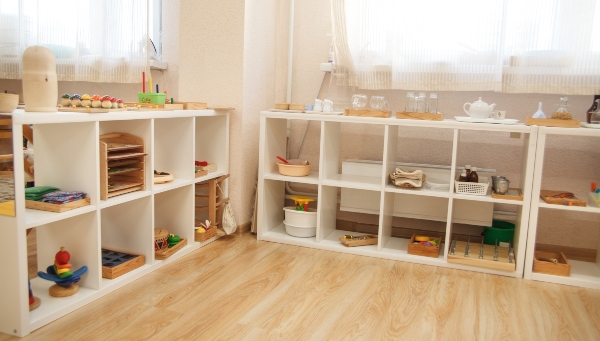
The purpose of education is to prepare our children for a future not yet known to us. Yet still, we (parents) have the primary responsibility of preparing them to meet the challenges of the unknown. That includes equipping them with the best tools and resources we currently have.
I’ve realized that the current education system has proven to be unqualified for the task at hand. Fortunately, my wife found this transformational education system we believe is ideal for the task at hand. It was started by an Italian physician called the Montessori Education System.
Having read the book, The Montessori Toddler — twice, watched videos and as an active participant for the past two years, I’m excited to share my knowledge and experience along with the long-term benefits.
In this article, part I, I want to share the benefits to a growing child. While in part II, I will focus on the long-term benefits. But before we begin part I, let us look at the data and current trends.
It’s All In The Data
Jeff Bezos, Amazon CEO, pledged & began implementing his $2 billion initiative in providing access to low-income communities to Montessori education. Like many other influential leaders including Google founders, Bezos was educated using Montessori.
Based on peer view research, Montessori has been proven to be more effective in developing children’s capacity in a range of disciplines including cognition, academics, social and behavioral measures among two different age groups (5 & 12–year-olds). Montessori students have significantly higher scores in maths and science when compared to non-Montessori students. FYI: Montessori currently caters to students from ages 3–12years old.
The Main Benefits
There are various distinctions between the Montessori method and the traditional system; down to the organizational structure of the classrooms.
It is a children-focused approached to learning. They utilized self-paced but guided approach to learning. This method encourages independence while developing a deep connection with concepts and objects in their environment. Backed by their gamification learning technique, children develop an intrinsic motivation to learning rather than viewing it as a challenge. This ultimately leads to greater experimentation and the development of their curiosity and intuition at an alarming rate.
Montessori vs non-Montessori Approach
In comparison to the traditional education system, this method differs in many aspects. The fundamental differences range from the KPIs (Key Performance Indicators), principles, and objectives. Here are a few instances where it disrupts the traditional method:
- The Montessori method encourages empathy, passion for social justice, and lifestyle of being a continuous learner.
- Unlike our current education system, they encourage and practice self-directed & self-paced learning. Alleviating the burden on both students and teachers from accomplishing a static curriculum/mandate during the academic year.
- Our current education system uses the reward and punishment model. Students who follow the rules and excel in their academics get the reward/prize. While those who deviate receives the rod of correction — punishment. Montessori on the other hand encourages self-motivation among students.
- Collaboration is a key component of their learning strategy, as this is an important tool in the real world. This is in contracts with a winner-takes-all approach to learning we are familiar with.
- Students are encouraged to develop life-long principles and not a collector of facts and figures.
- We are familiar with various types of examinations. From mind term to end of year examinations ensuring students are on their A game. Failure to maintain or improve your previous score could impact self-confidence. The new system doesn’t test the students.
- Therefore children are not being forced to perform at certain period.
- Finally, it encourages freedom to explore. Our traditional system punishes/discourages that type of behavior. I can recall an incident where a potential future chemist was expelled from my high school because he explored “too much”.
Our Experience
I’m a first-time dad, so please forgive me if I’m exaggerating, but I’ve seen some amazing developments in my two-year-old. I believe his rate of development has been impacted by this method. Having turned our home into a Montessori environment, here are a few things we’ve noticed:

Example of a basket he flipped.(iStockphoto)
- Based on our observation, he has the mental capacity of a 5-year-old. As a primary example, he used the basket as his walking aid.
- As with all toddlers, he loves to explore. Once he grasps a concept he proceeds to probe and expand its capabilities.
- He has become a self-motivated learner not dependent on us — reading is an exception. He decides where and what he wishes to explore.
- He is constantly seeking the most efficient route of achieving his goals.
Why Should You Practice It?
Our current education system was started as a need to prepare the labor force for the Industrial Revolution. We — parents — have been taught to apply only what we’ve learned to accomplish the task at hand even at the expense of our creativity. Punishment and reward are the key driving forces behind the decisions we make daily— don’t @ me.
Now we are on the cusp of a new revolution, the Technology Revolution. We need to make the necessary adjustments for their sake. Creativity, collaboration, problem-solving and emotional intelligence are some of the unique skills they will need for the future. Not the ability to regurgitate a maths formula or a business rule. Sir Ken Robinson mentioned that the traditional education system kills creativity. So why should we destroy their creative spirit?
I believe that the Montessori method provides the right environment & tools necessary for the future men and women of tomorrow. As Sir Ken said in his Ted Talk:
Children are bone without fear of being wrong. Creativity will never happen if you’re fearful of being wrong.
Let us use this opportunity to try something new and take that bold step in preparing them for the unknown.
—
This post was previously published on medium.com.
You Might Also Like These From The Good Men Project
 Compliments Men Want to Hear More Often Compliments Men Want to Hear More Often |
 Relationships Aren’t Easy, But They’re Worth It Relationships Aren’t Easy, But They’re Worth It |
 The One Thing Men Want More Than Sex The One Thing Men Want More Than Sex |
 ..A Man’s Kiss Tells You Everything ..A Man’s Kiss Tells You Everything |
Join The Good Men Project as a Premium Member today.
All Premium Members get to view The Good Men Project with NO ADS.
A $50 annual membership gives you an all access pass. You can be a part of every call, group, class and community.
A $25 annual membership gives you access to one class, one Social Interest group and our online communities.
A $12 annual membership gives you access to our Friday calls with the publisher, our online community.
Register New Account
Log in if you wish to renew an existing subscription.
Need more info? A complete list of benefits is here.
—
Photo credit: iStockPhoto.com
The post Montessori — A New Way of Raising a Child. Part I appeared first on The Good Men Project.
